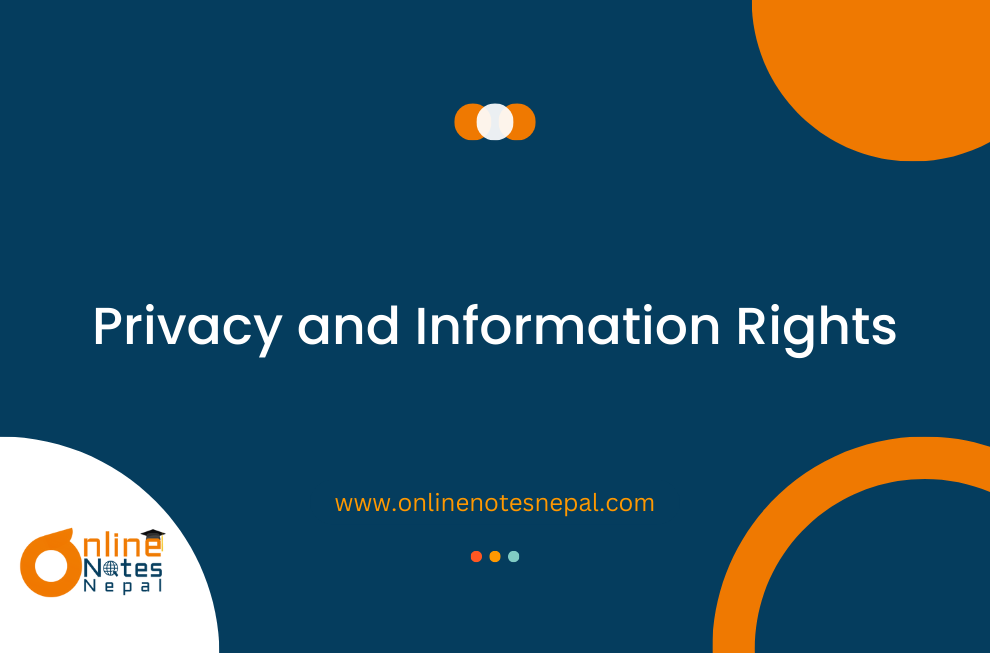Published by: krisha Silwal
Published date: 30 Jul 2024

Privacy and information rights are key features of e-commerce and digital interactions, with a focus on personal data protection and individual rights to their information. Here's an in-depth look at these concepts:
Privacy refers to the right of individuals to keep their personal information secure and control how it is collected, used, and shared.
Data Collection
Consent: Organizations must obtain explicit consent from individuals before collecting their personal data.
Minimization: Collect only the necessary data required for the intended purpose.
Data Use
Purpose Limitation: Use the data only for the purposes mentioned at the time of collection.
Transparency: Tell users how their data will be used, who will have access to it, and how long it will be stored.
Data Security
Protection Measures: Implement strong security measures to protect data from unauthorized access, breaches, and other security threats.
Data Breach Notification: Promptly inform affected individuals and relevant authorities in the event of a data breach.
Data Access
User Rights: Allow users to access their data, correct inaccuracies, and request deletion of their information.
Portability: Provide users with the ability to transfer their data to another service provider.
Best Practices
Information rights refer to the entitlements of individuals regarding their personal data, including the right to access, correct, delete, and control the use of their information.
Right to Access
Individuals have the right to know what personal data is being collected about them, how it is being used, and who it is being shared with.
Right to Rectification
Individuals can request corrections to any inaccuracies or incomplete information in their data.
Right to Erasure (Right to be Forgotten)
Individuals can request the deletion of their personal data under certain conditions, such as when the data is no longer necessary for the original purpose or if they withdraw consent.
Right to Restriction of Processing
Individuals can request that their data be used only for specific purposes and not for others, such as direct marketing.
Right to Data Portability
Individuals can obtain and reuse their personal data across different services, allowing them to transfer their data from one service provider to another.
Right to Object
Individuals can object to the processing of their personal data for specific purposes, such as profiling or direct marketing.
Best Practices
Several laws and regulations govern privacy and information rights globally. Some key frameworks include:
Respecting privacy and information rights is critical in e-commerce for establishing customer trust, guaranteeing legal compliance, and preserving a good reputation. Companies that prioritise these qualities can stand out in a competitive market and build long-term customer connections.
Intellectual property rights (IPR) refer to the legal protections granted to the creators of original works, including inventions, literary and artistic works, symbols, names, and images.
Key Types of Intellectual Property:
Copyright:
Trademarks:
Patents:
Trade Secrets:
Design Rights:
Challenges in E-Commerce:
Best Practices:
Privacy and information rights are critical to the ethical and legal treatment of personal data in e-commerce. By following best practices and adhering to legislative duties, organisations can protect individuals' rights, foster trust, and ensure responsible use of personal data.